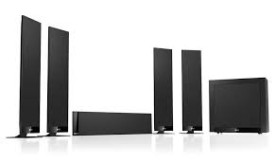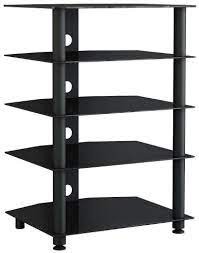I recently saw this on the internet... At some obscene hour in the morning when I couldn't sleep. Google's algorithm has got me entirely predictable by the looks of it.
This small article: HERE, got me thinking. It doesn't elaborate much on each of the points, and I figured I could flesh it out a little. Being in Hi-Fi sales at Apollo for what seems like a decade at this point gives me insight into each of these points.
1. You know all new music sucks
This is too broad. And it comes down to personal taste. I personally don't like how much music is compressed, and I am not a fan of most stuff to hit the charts. I've heard tracks with fake distorted bass to make bass notes audible on phone speakers, and there are certain vocal techniques that are used in a lot of Hip-Hop/Pop tracks that drive me mad. BUT... There are a handful of songs out there that I find catchy as hell. There's garbage recordings and absolute gems regardless of when the tracks were recorded.
The fact of the matter is that a lot of popular music is made to make money. And there's countless techniques on how to make a track grab peoples attention and get people to listen to it as much as possible as often as possible (even if it seems to vanish from the public eye in 6 months, or a year or whatever).
A lot of people may associate the Loudness wars with when music started to decline.
2. You think you know what a room sounds like from a photo
This is a bit of a mixed bag. I know an anechoic chamber will sound utterly dead. A modern, open plan living room with hard floors and floor to ceiling glass windows are going to echo a lot, and sound "brighter". That being said, the shape of the room, furnishings, ceiling height, floor material, etc etc all will change the way a room 'sounds'. A general rule of thumb is a brighter speaker can sound quite nice in an overly damped room, and a warmer speaker will probably sound more balanced in a harder room.
I've found with harder, modern houses in particular, hallways tend to carry echoes. Everything is louder, and somehow makes everything harder to hear. John's house (boss) is very much like this, his living room is very square and tall, with his kitchen at the side. A glass door is at the back wall (in relation to the front stage, tv etc). A perfect use case for acoustic treatment... if it were to not be vetoed by his wife.
Square rooms tend to not sound great, standing waves will make the sound sort of cancel in some spots, double up in others. It can help to damp one wall or another. I have found if you have a rectangular room, using the length of it with speakers and subs at one end will help the system sound larger, more effortless, where as using the width of a long room can make bass sound a bit thin.
There's rules of thumb, and I can speak from experience, but I can't go to the extent of saying "This room will make your stereo sound shit" etc. It's something we usually just have to work around.
3. You think you know how good the phono stage is after listening for less than a minute to a system you’ve never heard before
This is self explanatory. There are some things you can pick up from certain components, like the way the speaker sounds, or perhaps the amp driving it. But for things like the phono stage, without a baseline to compare against, you're flying blind. Maybe a distinct lack of noise can be attributed to the phono stage on first listen, but not much else.
4. You think records are noisy
Yes and no. On paper, records have a much higher noise floor. This is due to the physics of playing a record (literally friction), and the electronics having to amplify something by 40 or 60 decibels.
A noisy record is usually one that is dirty or damaged. Some constant noise can be attributed to the cartridge or phono stage (or both). I have found a moving coil cartridge using a step up transformer to be vanishingly quiet (in particular, MC carts with finer styli), provided the record is clean and in good condition. Moving Magnet cartridges are somehow more susceptible to humming to some degree, depending on the preamp.
If you get a budget turntable from a big box store for a few hundred dollars (and less), expect them to have a sapphire stylus, or a cheap diamond stylus. They will usually have a boat load of noise to start with. Old records will usually be very noisy (unless they were well made, kept in very good condition etc), and 78RPM Shellac records will usually sound like nails on a chalkboard unless you have the appropriate stylus for it.
5. You believe digital is just 1s and 0s
You can't hear digital audio. If you feed a digital signal directly into an analogue system, you will either hear static or absolutely nothing. I haven't tested this to see which one it is, but I am going to lean towards hearing nothing. The signal is being sent down the wire as an ANALOGUE square wave at upwards of 40kHz, unless you have bat ears grafted on to your head (and are somehow functional), you won't hear a thing.
Now, with the analogue part, down the wire it can still be measured as an analogue waveform and the signal is interpreted by the equipment on the receiving end by weather it sees a high voltage or low voltage (the 1's and 0's). In theory, if you have two devices putting out the same ones and zeros, it should sound the same. There are so many factors which can affect that signal though. If that voltage change isn't perfect, on exact time, or has some noise in the signal path, it will change how it is received. The DAC, the device that receives and interprets those ones and zeros will usually have some degree of buffering to correct for timing errors or if the signal isn't perfect, but all of that requires processing, which introduces noise, which affects how the DAC chip behaves. If it receives a signal that is a fraction of a microsecond behind or ahead, and that square wave has a kink, or dip, or some kind of variation, that chip has to do some work to either compensate for it, or it interprets that signal as a different digital value and will output a slightly different signal.
Different CD transports I have tested and they had different sounds using the same digital cable into the same DAC. Different Coaxial cables and different Optical TOSLink cables have sounded different. USB cables and ethernet cables as well. It is subtle, very subtle, and in many cases if your system isn't overly revealing, it is likely not worth the money to go down that path. With many of our cables, we are happy to take a cable back (as long as it is in the same condition it left the store in) for an exchange or refund if you don't find it worthwhile.
6. You know cables don’t matter
To many people, they don't matter. They can either do very little, or completely change the character of sound of your system. It's always "fun" to argue with electricians, electronics engineers, audio engineers, people with x number of years of experience etc. It is a very big "it depends" sort of situation. They won't do the same thing to different components.
My experience is that cables CAN make a difference. In some cases, it can be worthwhile using one particular cable, but not another. I try to take the time to listen to as many of the products in the store to find out what actually works and what isn't worthwhile. RCA or XLR cables are usually the most prominent in how much they can change the sound. Speaker cables can be quite obvious as well. Less obvious differences are power cables which can have a different effect on different components (on some amps it can make them sound quieter, less distorted, more effortless, on other amplifiers they don't do a damn thing). Digital cables is where most of the controversy is due to the ones and zeros argument, and they are probably the most subtle. All I can say is to try it. It may or may not be worthwhile. Only your ears can tell you weather it is or not.
7. You only consider buying DACs with a specific D/A chip
If you could compare the DAC chip without changing anything else (Which you can't), then maybe this would have some merit. Most of the sound of a DAC comes from everything else in the circuit. Because DAC chips are so cheap (in the sense that it may be $3 or $4 per chip), it makes sense that many companies would go with the chip that has the best specifications. The latest DAC chips support some extreme resolutions (32bit, 768kHz), but quite frankly, you will likely never feed it a signal that is half of that resolution.
You can have the best DAC chip in a dirt cheap DAC, and it will sound cheap. You can have an old DAC chip that doesn't do more than 16/48 in a well built unit from a reputable brand, and it can sound amazing. And there's brands that don't use DAC chips at all. Chord Electronics use an FPGA, sort of like programmable hardware. Some companies will use something called an R2R DAC which doesn't have any integrated circuits at all.
8. You don’t need to hear speakers to know if you like them or not
You can make some assumptions about the sound of a speaker by the specifications, or frequency response diagrams, but at the end of the day those numbers on paper aren't going to really tell you what something will sound like to your ears.
Speakers with AMT tweeters, or Ribbon tweeters don't always sound very bright and forward. 3 way speakers don't always sound better than 2 way speakers. Large box speakers don't always sound boomy. Horn loaded speakers aren't always harsh.
Often size does not necessarily dictate the sound capabilities of a speaker. There's some absolutely astounding tiny speakers (ELAC BS312) which beat the laws of physics into submission.
9. You only recommend gear you own
What works in my home probably won't work in yours. I have a DIY amplifier, an old Parasound pre-amplifier, a Technics SP10 with a ProJect arm, Infinity speakers... It is a convoluted set of equipment that I like the sound of. I will recommend pieces that I have used, based on my own experience, but ultimately when you're looking to buy something from us, I will always try to find the best solution for your needs, regardless of weather I personally like the equipment or not.
10. You like everything you hear for the first 20 seconds
Sometimes something might just sound right to you. It won't take an hour or a day or a year to come to enjoy it. If you're new to Hi-Fi, it is likely everything will sound awesome if you haven't heard much other than the occasional sound bar or what your TV has built in. I've had several customers who have come in and they've said that they wanted to hear X product, or Y speakers or whatever and within a minute they will say "Great, I'll take them". Sometimes you will want to hear a large variety of music on a few different sets of speakers or amps to find something just right.And sometimes the less you hear the less confusing it is.






Validate your login
Sign In
Create New Account